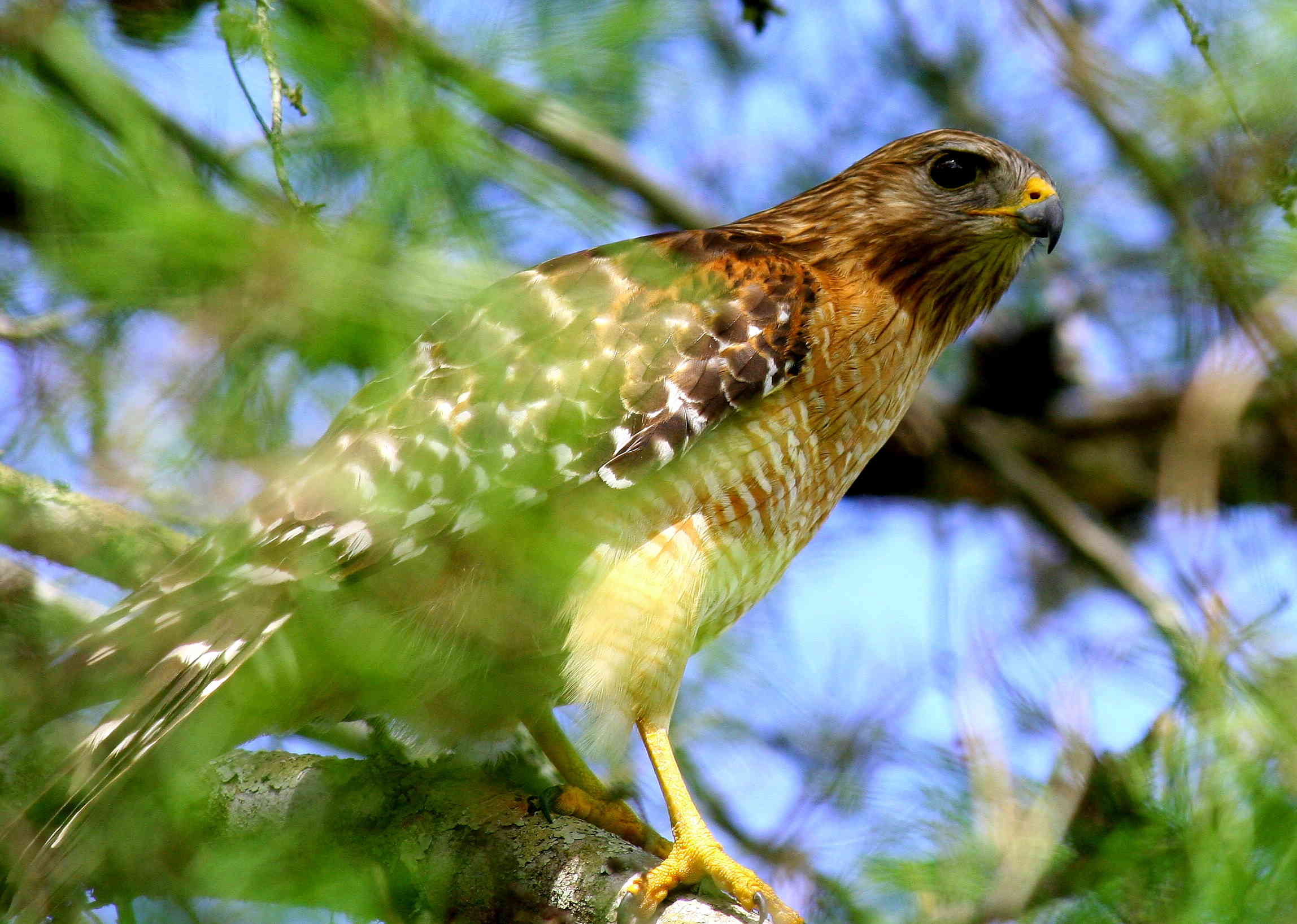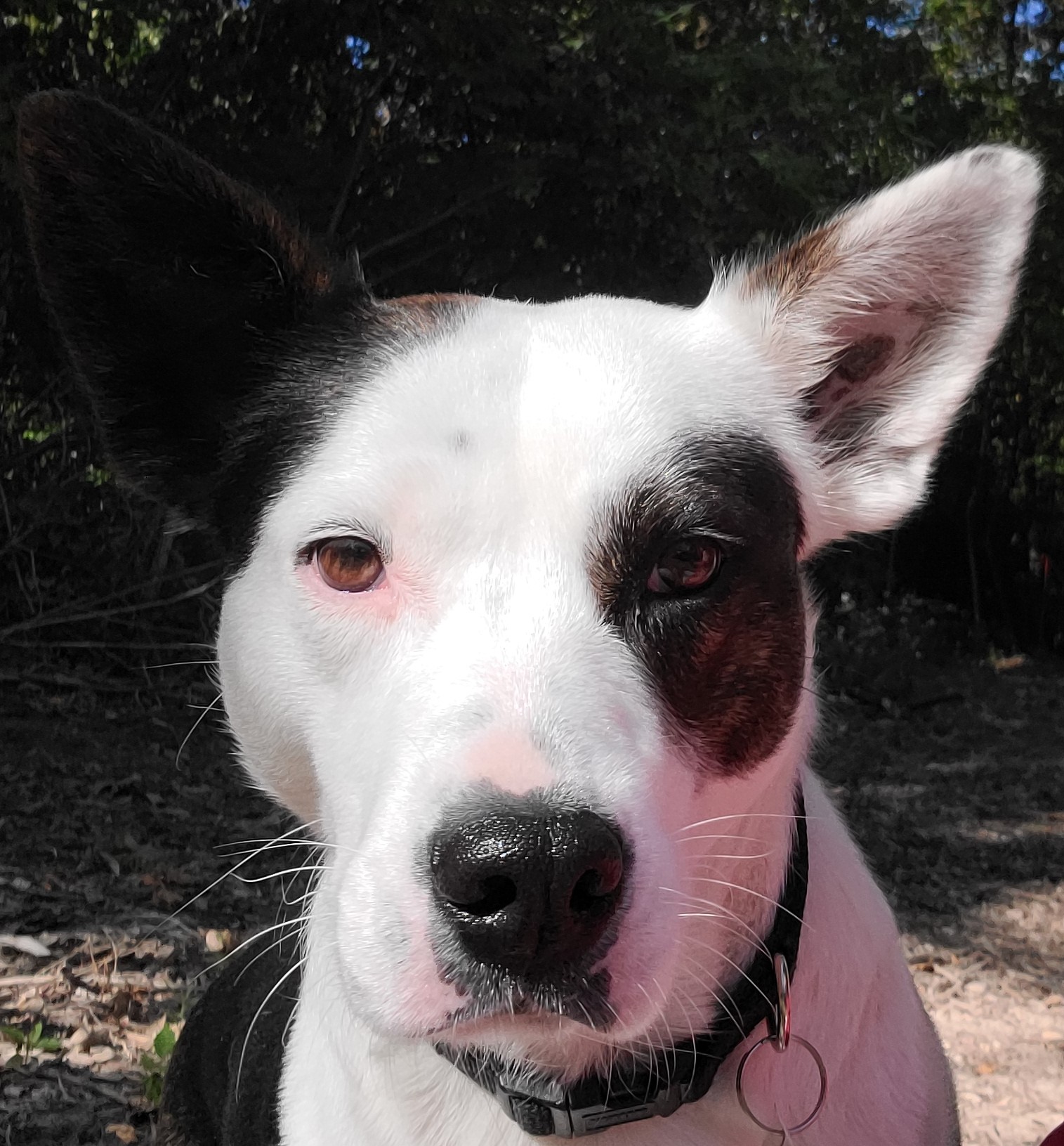
[Note: This post isn’t specifically related to horses, but it is very much about relationships, trust, and learning about each other’s strengths and abilities. That’s exactly what Galahad and I have been working on for all these years, so I’m cross-posting this here from It’s an Alchemical Life. Enjoy!]
Our Maise is quite the dog. From what I’ve learned, Border collies (and especially the smooth-coated, prick-eared variety) were specifically bred to work independently at a pretty good distance from the handler. That’s our girl, for sure. I had a chance to see her instincts in action this morning.
We went on our normal outing in the woods behind the house, with Maise and her buddy Little Bear the Cat running ahead and exploring together. Maise, as always these mornings, was off leash. The ratty, overgrown wooded area is pretty private and inaccessible except by crossing a steep-banked creek or a railroad track, so there are rarely any people around. It’s pretty safe to let her run there.
For a little while she stayed close by, waiting for me to catch up as we meandered down the path cut through the honeysuckle and downed trees. But then she disappeared down into the creek someplace.
That could be worrisome. We’ve tried to train her to stay right near us, and tried to teach her to come when called. I will freely admit that her recall sucks. Nothing wrong with her hearing. When I call, she’ll usually look up, cock her head, and go on with whatever it is that she’s doing. I’ve tried using my sweetest voice, my best baby talk, the tastiest treats, and even a dog whistle. Yeah, she hears them, thinks about it, and then, once in a while, comes back…or not. Not good. It’s that independence that’s in her blood and bones.
So why do I let her go, you ask? Because we both love the woods so much, and it is impossible to walk a leashed dog along narrow, brush-infested trails. I tried many times, and it was a disaster. Neither of us had any fun at all, but the desire to be outside was strong. After some work in a little temporary pen I built in the yard, and some tentative and mostly successful efforts in the common area near the house, I decided it was worth the risk. And mostly, in those early days, things worked fine. Mostly, but not always. There were days when she’d shoot off alone, chasing a squirrel or an irresistible smell. No amount of yelling would prevent it, or bring her back.
Used to be that I’d go crashing through the underbrush after her, shouting (and yes, cursing occasionally). It never did any good. When she did return, all happy and wiggly, it would invariably be from the opposite direction to where I’d been looking. Then I’d clip on her lead and angrily drag her back to the deck, close the gate, and leave her there to ponder her misbehavior.
After a couple of months of this, I read or watched something that gave me an idea. This trainer said she always watched to see if the dog, off lead, paid attention when the owner turned and went the other way. Maise, I knew, did pay attention. So I tried an experiment: When she took off, I took off in the opposite direction, and went back into the house. I was pretty darn nervous about it, but nothing else was working.
To my huge surprise, not five minutes later a worried-looking little dog came racing onto the deck and peered in the door. Well, interesting! I waited until my heart rate went back down, then let her in.
The next time she took off, she didn’t reappear for quite some time, so I went looking, and found her on the front porch, lying calmly in the sunshine and surveying the street. No telling how long she’d been there.
Over the last month or two, things have continued to evolve. This morning’s adventure shows where we are right now: When Maise disappeared into the creek, I walked a few yards back down the trail toward the house, and waited silently. Maybe a minute later, I saw a black-and-white missile streaking through the cleared area near the house and up onto the deck. The air this morning was damp and perfectly still, so she hadn’t caught my scent, and I had been motionless, so her sharp eyes hadn’t spotted me, either.
I laughed and called out to her. Up came her head, and a second later she was racing to me, full-speed, and slid to a stop just in front of me. We enjoyed a few minutes of laughing and rolling and playing while I told her what a wonderful and amazing dog she is. And she is!
I’m no dog trainer. But what I am good at is relationships. Finally, after many months, Maise’s strengths and abilities have become clear to me. I’ve moved from trying to dominate her to being in a stronger and stronger relationship with her, so that there’s growing mutual trust between us.
Wow. She and Galahad the Horse are both teaching me so much about life and flow and love without conditions. I’ve been fighting it tooth and nail because of my own history, but thank goodness for such wonderful teachers, and for the opportunity for learning. Amazing!
 This is one of those posts where “nothing much happens.” (That’s a great podcast, BTW, for helping the listener fall asleep. Check it out.)
This is one of those posts where “nothing much happens.” (That’s a great podcast, BTW, for helping the listener fall asleep. Check it out.) I had such an amazing experience with Galahad this afternoon—we were (as usual) hanging out at the back of my car. He had been munching his hay and looking at “stuff” going on around us, and I’d been just randomly grooming at him, stroking him, and admiring his fuzziness. Then I sat down on the tailgate.
I had such an amazing experience with Galahad this afternoon—we were (as usual) hanging out at the back of my car. He had been munching his hay and looking at “stuff” going on around us, and I’d been just randomly grooming at him, stroking him, and admiring his fuzziness. Then I sat down on the tailgate.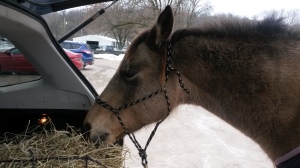
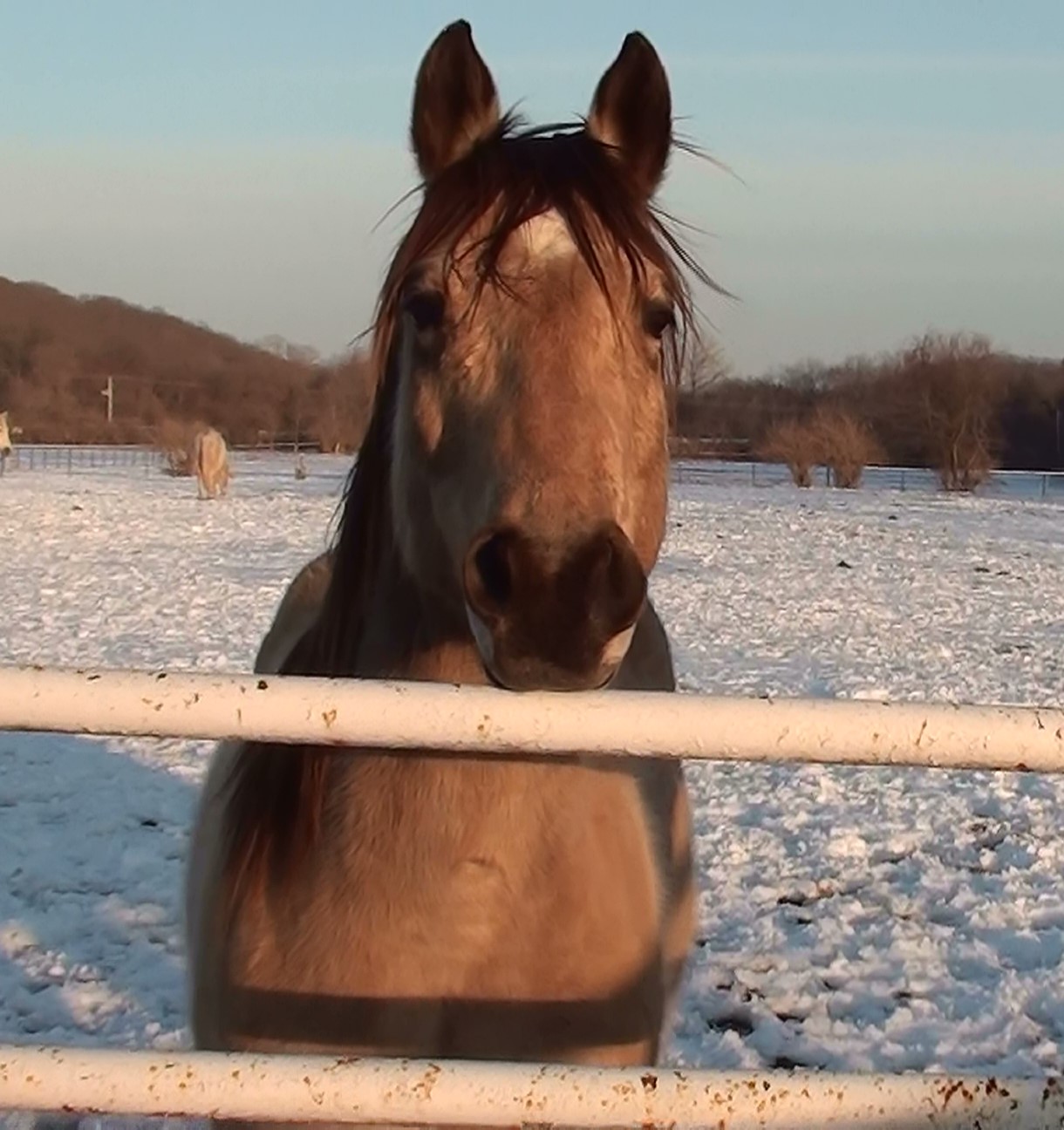 The last year or so I’ve been working especially hard on my relationship with Galahad (with the help of the amazing Paulette Clark of Ribbleton Attunement).
The last year or so I’ve been working especially hard on my relationship with Galahad (with the help of the amazing Paulette Clark of Ribbleton Attunement).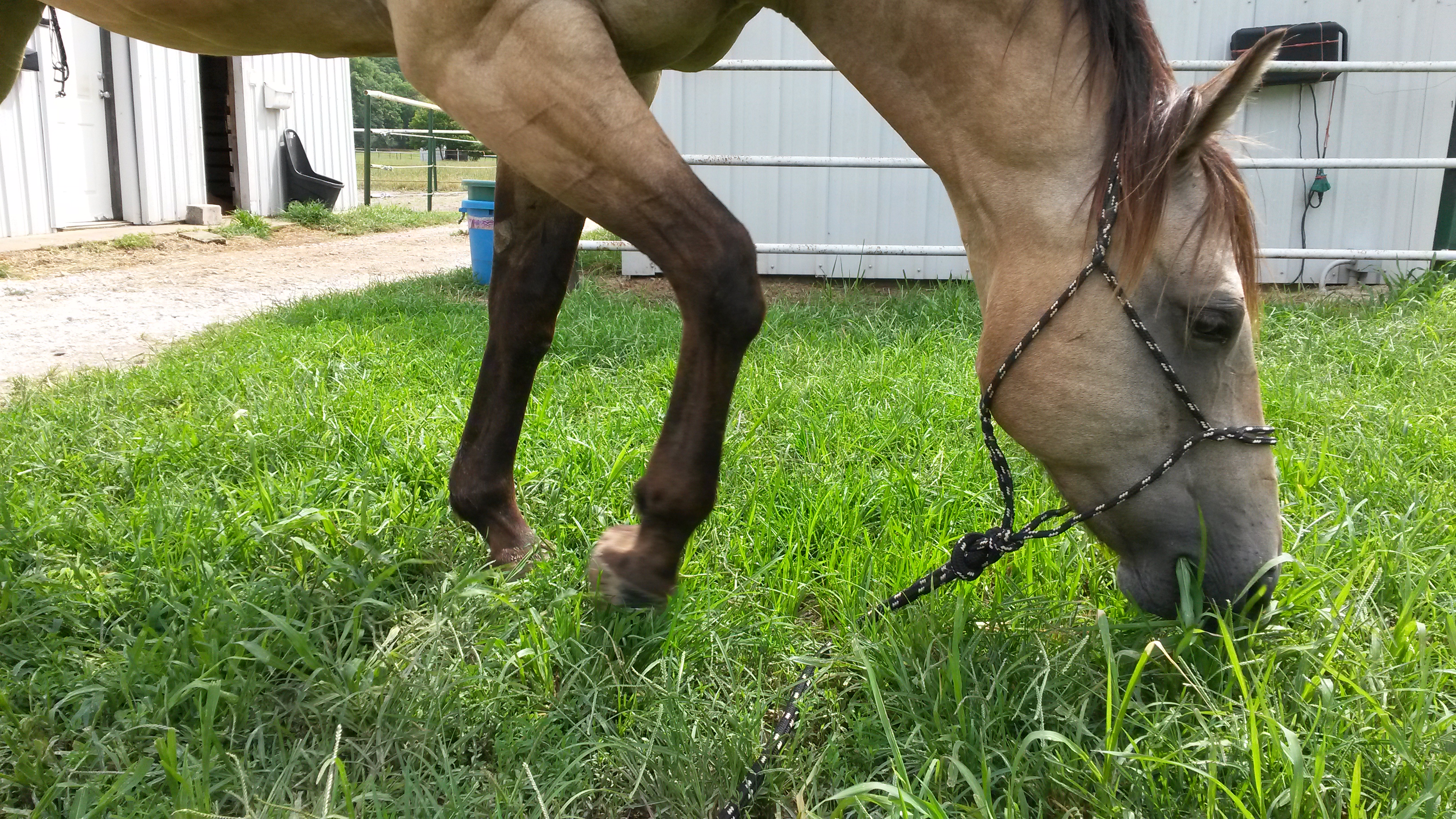 Though I’ve been somewhat limited in what I can do the last seven or eight months, there’s still been plenty of horse time. Galahad and I have continued our adventures in relationship-building, and it’s been wonderful. I have so much to un-learn, including how I interpret his behavior. I’m really beginning to understand that everything he does when we’re together is a way of trying to communicate with me. He’s not “bad,” “difficult,” or “stubborn.” Those are just interpretations I’ve put on him. He just has a good sense of himself and a great and patient willingness to keep trying to communicate until I finally “get” it.
Though I’ve been somewhat limited in what I can do the last seven or eight months, there’s still been plenty of horse time. Galahad and I have continued our adventures in relationship-building, and it’s been wonderful. I have so much to un-learn, including how I interpret his behavior. I’m really beginning to understand that everything he does when we’re together is a way of trying to communicate with me. He’s not “bad,” “difficult,” or “stubborn.” Those are just interpretations I’ve put on him. He just has a good sense of himself and a great and patient willingness to keep trying to communicate until I finally “get” it.
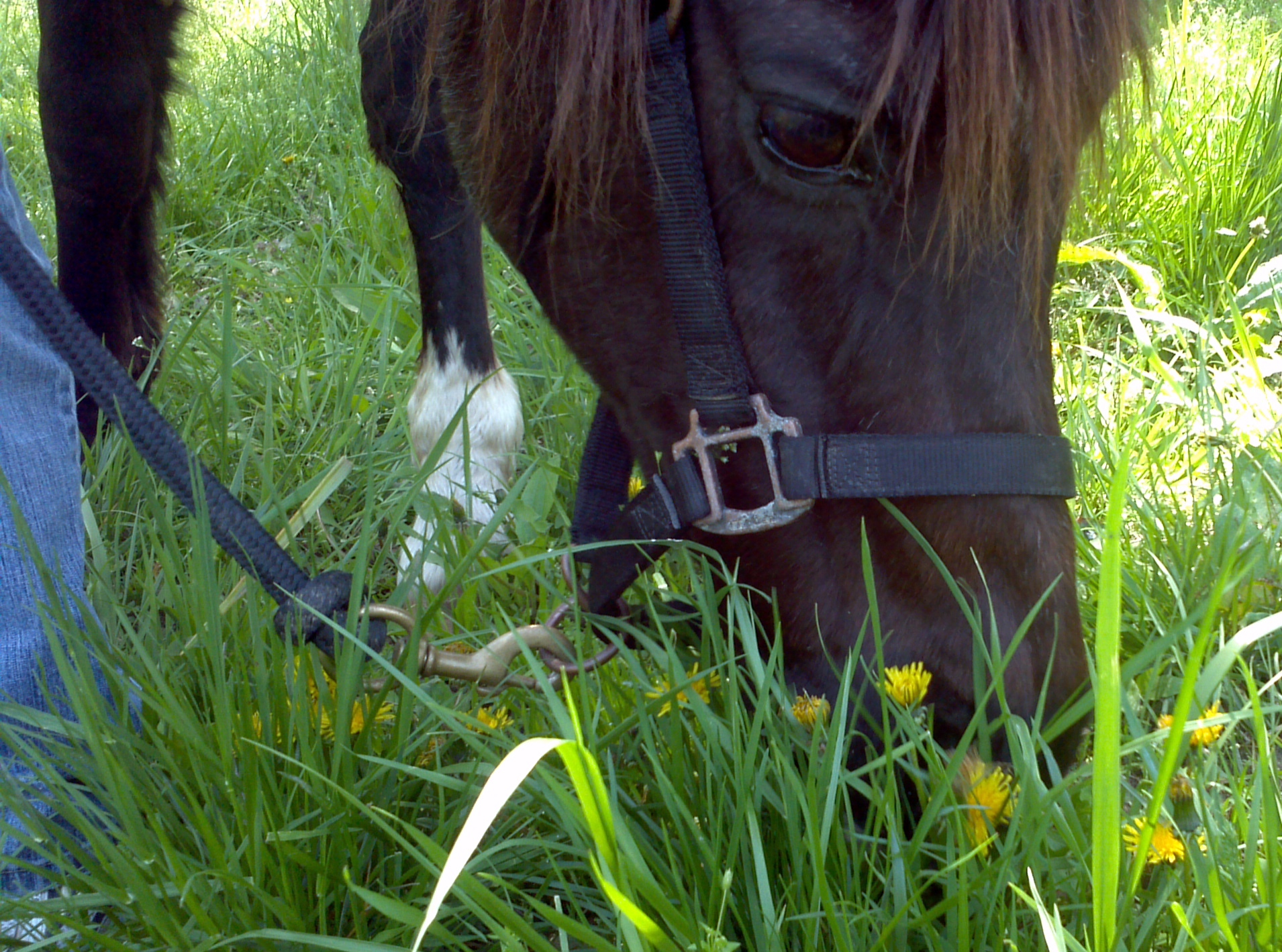 On the 31st of March, a phone call, the kind you never want to get, roused me from the comfort of my Saturday-morning coffee in bed. Midnight was down in his paddock and couldn’t get up.
On the 31st of March, a phone call, the kind you never want to get, roused me from the comfort of my Saturday-morning coffee in bed. Midnight was down in his paddock and couldn’t get up. I had a kind of revelation the other day, after posting
I had a kind of revelation the other day, after posting 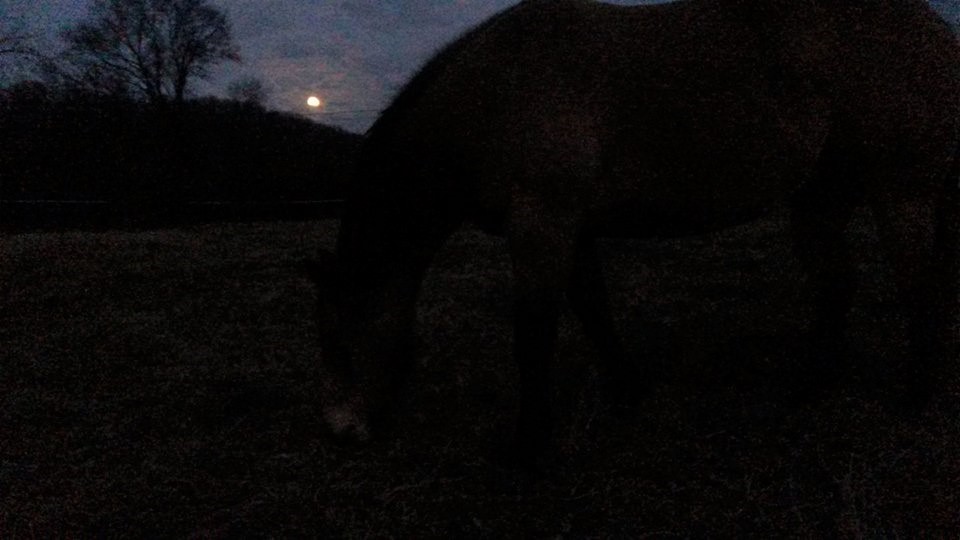 I got to the barn today a few minutes after sundown. The light was fading but the sky was still bright when I reached the pasture. The herd was moving slowly, heads down, toward the east end of the pasture, each horse in his own space but obviously connected. It was so peaceful.
I got to the barn today a few minutes after sundown. The light was fading but the sky was still bright when I reached the pasture. The herd was moving slowly, heads down, toward the east end of the pasture, each horse in his own space but obviously connected. It was so peaceful.